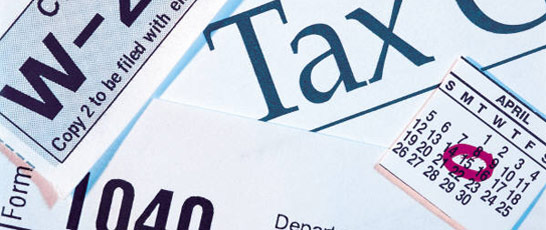How to Deal with Back Taxes Owed to the IRS

Can you discharge back taxes in bankruptcy?
Many Americans are very aware of April 15th – the day income tax returns are due to the federal government. This day has come and gone, so why are we still talking about taxes? Because many people are still worrying about back taxes owed to the IRS that they cannot pay.
For those left with questions about their unpaid taxes and how to handle them, you are not alone. An estimated 17% of taxes go unpaid each year in the United States. Our office works with people in similar situations to provide answers about this topic, and to help explain taxes’ role in the bankruptcy process.
There are many reasons people find themselves unable to pay taxes. Sometimes they did not file a tax return, or they didn’t have enough money on hand to pay federal and state taxes. When these debts go unpaid, the IRS take measures to get their money, similar to a creditor collecting debts. But there are several options for those facing the dilemma of unpaid taxes.
One solution is to create a payment plan with the IRS. Your taxes don’t have to be paid in one lump sum – it’s possible to set up payment in monthly installments, just as you would pay off something like credit card debt. But, like a credit card payment, tax payments are subject to extra fees, and they often take more than several months to pay off. Another resolution is an offer in compromise, or an IOC. This process will forgive some of your tax debt in order to make it possible for you to repay the rest of your taxes owed. The government is willing to take a loss in order to get some of their money back. This option is similar to a Chapter 13 personal bankruptcy. However, the IOC application and negotiation process is time consuming, and interest does accrue on unpaid taxes during this period. It is important to keep these factors in mind before filing for an offer in compromise or creating a payment plan.
Another viable option for getting rid of tax debt is to file for Chapter 7 or Chapter 13 bankruptcy. Various types of taxes are eligible for discharge under the bankruptcy code. A Chapter 13 bankruptcy allows n individual to set up a payment plan to pay off debt over time. For those who qualify for Chapter 7 bankruptcy, they can sell off assets and put the profits towards paying off tax debt. There are also certain taxes that are eligible for discharge depending on the tax return and the tax year in question. For example, you can discharge income tax debt if it is at least three years old, and if you filed a tax return for the taxes in question more than two years before filing for bankruptcy. As you can see, the rules are very specific, so it’s best to work with a bankruptcy attorney to make sure you go through the proper steps to get the most taxes forgiven and acheive the best outcome.
All the rules and guidelines may sound intimidating, but the reality is that there are options available to people who find themselves swamped with tax debt. So don’t ignore it or sweep it under the rug, take action to see how you can free yourself from back taxes.
If you have questions about tax debt and want to find out the best solution for your current financial situation, call the Law Offices of Bruce Feinstein, Esq. today for a Free Consultation.
Tags: attorney, bankruptcy, bruce feinstein esq, chapter 11, chapter 13, Chpter 7, free consultation, law office, lawyer, personal bankruptcy, queens, tax debt, tax negotiation
Trackback from your site.






